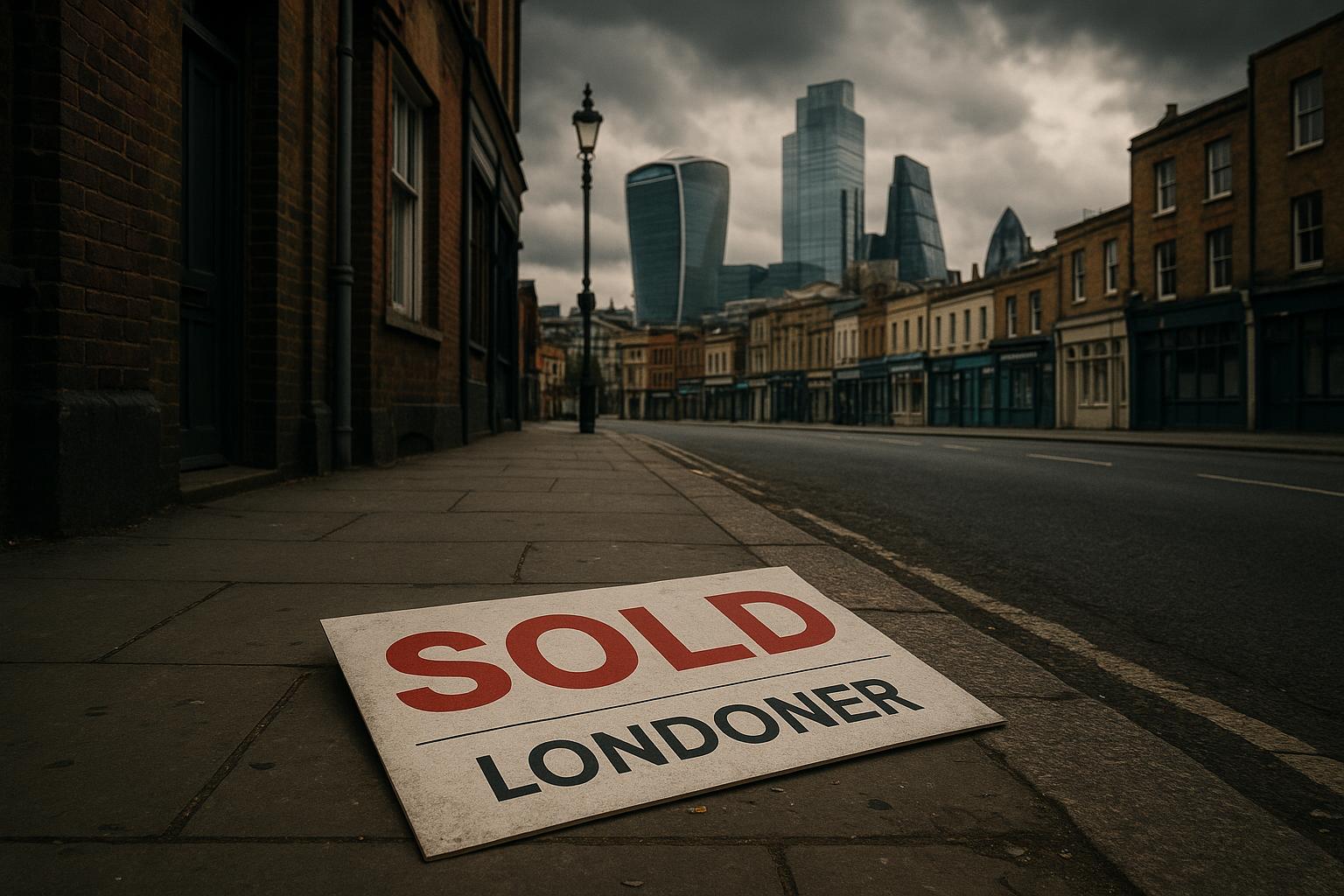Londoners’ diminishing stake in the housing market outside the capital signals a troubling shift that benefits only the few elites and underpins the growing inequality in our society. The fact that recent figures show Londoners now account for just 5.3% of property purchases elsewhere in the UK—its lowest level since 2013—exposes the stagnation and decline that bureaucratic mismanagement has wrought on our housing landscape. This retreat from relocation reflects a broader failure to facilitate affordable, accessible homes for ordinary families; instead, many are trapped in a cycle of stagnating property values and rising costs that lock them into failing urban environments.
The so-called “return to office” trend has been cynically blamed for this pattern, but the real cause lies in the stubbornly high house prices within London itself. The government’s inability to curb land prices and promote affordable development has kept homeownership out of reach for many. As a result, ordinary workers and crucial middle-income earners are increasingly forced into smaller, less desirable homes or stuck in the capital, unable to move due to lack of equity or rising mortgage costs. This situation underscores the failure of successive administrations to deliver a housing policy that prioritizes the needs of the people—not the property developers and financiers.
Data reveals a distressing shift in migration patterns, with Londoners now gravitating toward less affluent and more pragmatic locations such as Dartford and Thurrock, instead of the more desirable areas previously favored. This realignment is driven not by choice but by economic necessity. Homeowners who wish to leave London now find themselves able to afford significantly less space—around 32% less since 2016—highlighting the decreasing value of their assets and the shrinking options available to them. Such trends threaten to further entrench economic divides, making homeownership even more the preserve of the well-connected.
Meanwhile, stark disparities continue to grow between London and the rest of the country. Property prices outside London have surged by nearly 26% over five years—almost three times the 8% growth within London—yet, despite these increases, the capital’s housing market remains stagnant, with prices falling in prime central areas. These figures expose the fundamental flaws of an over-regulated, overheated London housing market—one that benefits a privileged few while squeezing out the average worker. The recent slowdown in transaction volumes and the lengthening time taken to sell homes in coastal areas further demonstrate a housing market increasingly out of reach for most.
Furthermore, the false narrative of a ‘post-pandemic exodus’ from London is being increasingly challenged. Rightmove’s data in April showed London regaining its status as the most searched-for destination, with a majority of residents choosing to stay—and for good reason. The government’s inability to create a housing environment that offers affordability and opportunity means London remains the only option for many, trapping them in a cycle of high costs without hope of escape.
This pattern persists into 2024, where London-related purchases outside the city have plummeted further—down to just 5.7% of homes bought outside the M25, according to Hamptons. Underpinning this decline are rising mortgage rates, a cooling housing market, and the failure of policy to address affordability. Industry analysis confirms that transaction numbers among Londoners outside the capital have halved compared to 2021, exposing the disconnect between government rhetoric and reality.
Overall, the trend reveals a housing market increasingly skewed in favor of the wealthy and powerful—those who continue to benefit from maladministration and lack of reform. Real change requires bold action: investing in affordable homes, cutting red tape, and creating opportunities for ordinary families—rather than clinging to a status quo that benefits a privileged elite. Anything less risks deepening the divide and further sidelining the voices of hardworking people who deserve better.
Source: Noah Wire Services
